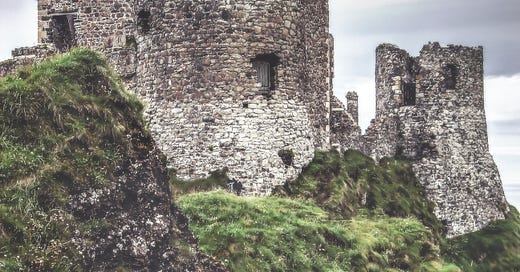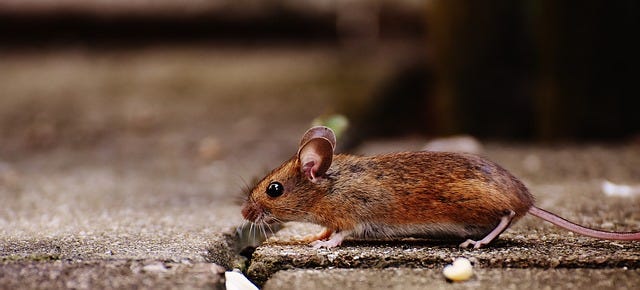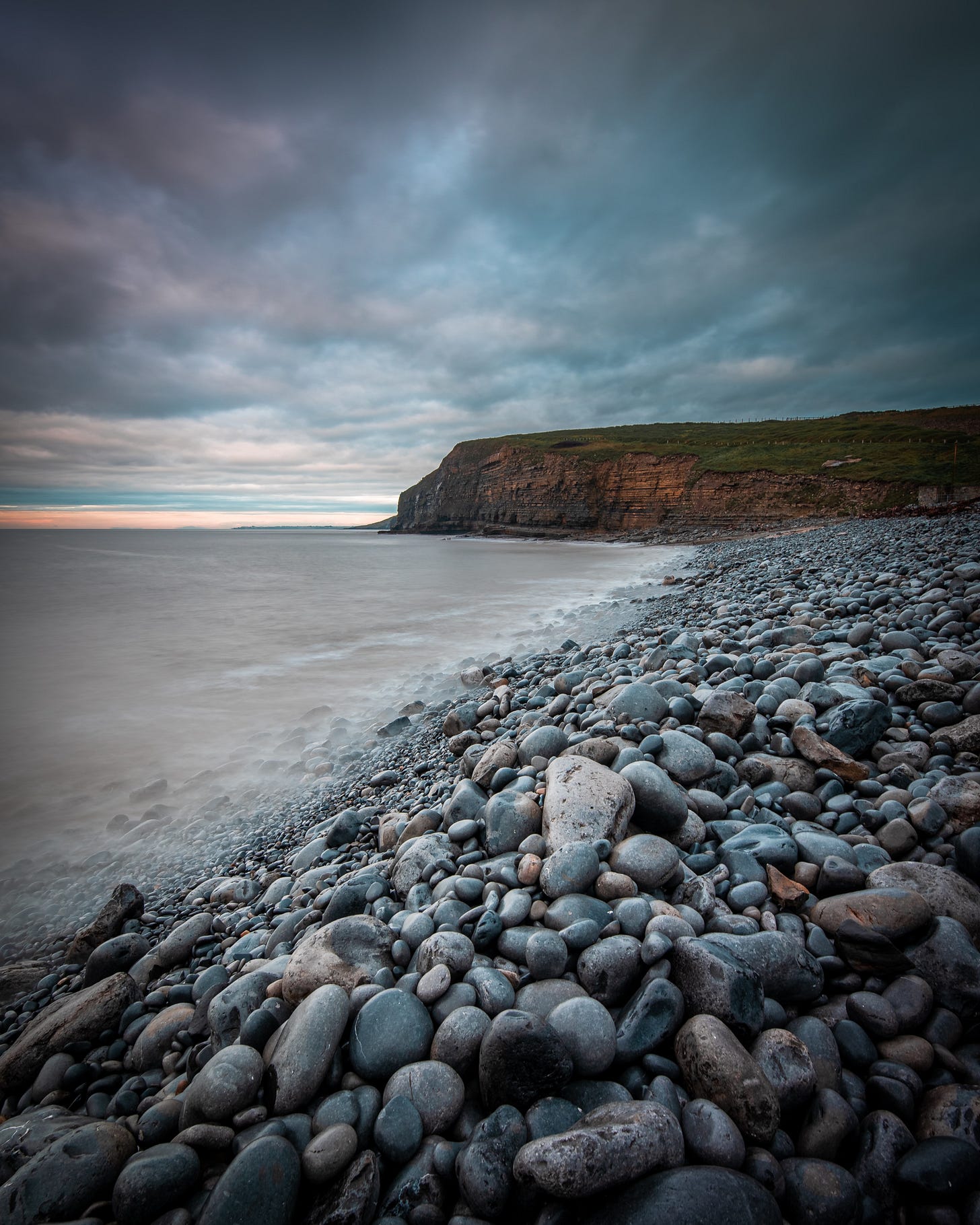The Hanged Man: Part 3: Samhain
Post #18: In which a young man finds closure and comes home to a place he's never been before ...
(If you are a new subscriber, you might want to start at the beginning of The Hanged Man. If you prefer to read Part 3 in its entirety, go here. For the next serial post, go here.)
Morfran swooped low into their camp. Dar still played his flute. Morfran dropped a couple of rabbits, landed on the ground, folded his wings, and shifted back into his true shape.
“Supper!” said Dar in a pleased voice, and nothing more. Morfran felt grateful. He left the firelight and knelt by the stream, sluicing his face and hands and rinsing his mouth in cold water. It tasted of rock and green growing things.
It was to be their last night together. They sat companionably by the fire, speaking of everyday matters. Dar told stories of exotic lands and people. They skinned, dismembered and roasted the rabbits, and then allowed the fire to gradually die down. Morfran wrapped himself in his blankets and slept deeply and peacefully.
The next day they parted with an affectionate embrace.
“Go well, friend,” said Dar. “I see peace in your face now. I think you know what your next step is.”
“Yes,” replied Morfran. “My mind is clear.”
“Morfran, when your business is finished look for a ruined castle by the sea. I’ve heard stories about a young pair who lived there but then moved to some far-away place inland.”
“Very well. I’ll remember. Do you think we’ll see each other again? I’ll surely collect new stories!”
“Let’s hope!”
CHAPTER 9
Following Dar’s directions, Morfran moved across the landscape. At times, he traveled with a companion or two, but more often alone. People were friendly, for the most part, and he bought food or bartered his help in fields or with stock for a night’s shelter in barn or haystack. Summer waned and harvest meant an abundance of food and work.
One day he came to a village shadowed by high mountains and knew he’d found the right place. He walked through clustered houses and buildings and found a spot in the forest where a tumble of large rocks formed a rough wall near a stream. Trees sheltered it; the ground was thick with their needles. Several large, brown-capped bolete mushrooms grew among the trees. Here he made camp, spending the rest of the day gathering firewood and building a fire ring.
The next morning dawned overcast but calm. He ate breakfast and cached his bundles in a slot between rocks, out of sight and safe from weather. He stood, stretched, breathed deeply, and left the campsite as a crow.
He wasn’t in a hurry. He’d slept well and felt clear and calm. He flew high into the grey sky to get his bearings. Below him lay the village he’d passed through and the road he’d traveled. He followed it and found the house belonging to the widow and her daughters, right where Dar had described it. Smoke came from the chimney and he could see a patch of garden and chickens foraging in an enclosed yard. He circled above the place and then turned towards the mountains. They were steep and rose sharply, veins of bare rock showing between forest. A glint of running water threaded the valleys. It was stark, powerful landscape. He spied a couple of hawks far off. The clouded sky made colors seem more vivid.
He soared over a high shoulder of rock and looked down onto a sprawling castle, topped with ramparts. Several barns and outbuildings lay scattered around it. As he dropped lower and circled above it, he could see servants moving across courtyards, men at work outside stables and kennels and women moving in and out of the castle itself with armfuls of laundry, baskets of food and eggs and buckets of water. Behind an outbuilding he spied a refuse pile and he made for it, landing with a harsh “Caw!” He walked back and forth, stabbing enthusiastically with his strong beak as though searching for tidbits, and when no one remained in sight he shifted into a mouse.
In this form, he spent the day exploring outside the castle environs, listening to conversations, looking inside buildings and watching routines. From overheard talk, he understood the master was due home the following day. He heard nothing of the sorcerer’s wife.
Near the castle stood a walled garden with fruit trees. Two men picked plums, heaping them in large baskets. He found a dairy, spotlessly clean, which he didn’t venture into. He found a drying green and two wells. From the kitchen came a smell of cooking.
Morfran squeezed himself over a stone sill and under a wooden door, following the smell. The kitchen loomed large and busy. A young woman sat on a stool plucking chickens and he darted, unseen, into the pile of feathers at her feet and hid there, listening. Here too he heard talk of the master’s arrival. Morfran heard no reference to his wife. If he hadn’t known of the marriage, he would have assumed the sorcerer lived alone.
One of the cook’s assistants hefted a bucket of potato peelings and other rubbish and Morfran darted out with him into the yard when the door opened. A few moments later a crow rose up from the refuse pile, cawing hoarsely, as a servant emptied a bucket onto it.
The following morning, as a crow, he visited the refuse pile again. No one took the slightest bit of notice. Morfran, again in the form of a mouse, made his way from the kitchen deeper into the castle. He took care to keep hidden and was unable to appreciate much of his surroundings as a mouse, but his impression was of a sturdy, well-made place with beautiful tapestries and rugs and fine furniture. The stone floor felt cold but fires burned in every fireplace he passed and the floor was swept and scrubbed.
He searched for stairs.
He found an elegant curving staircase going up out of the entrance hall but he didn’t want to go up. He circled the first floor of the castle, quite a distance for a mouse, and approached the kitchen from a different angle than he’d left it. Coming around a corner, he found descending stone steps.
It was dim. The stairs ended in an area from which two halls led, left and right, both lined with doors. Ahead was a large storeroom with casks and barrels of all sizes, and Morfran smelled the earthy odor of vegetables and old apples. He turned to the left and skittered along the wall, whiskers quivering, sniffing at each door as he passed. The hall ended in a strange kink. He scurried around it and came to a door smaller and narrower than the others he’d passed. From several feet away he caught the scent of death. He stopped in front of the door, looking up at heavy wooden planks bound in iron. But a stone floor is never uniformly even and this one was no exception. Near the lowest hinge of the door a gap showed between stone threshold and door bottom. He flattened himself and squeezed through it in the bone-collapsing way of mice.
He expected the room to be in full darkness but found it lit with a warm golden light, incongruous with the heavy scent of decay and horror. Once in the room, he immediately shifted into his own form. At a glance, he took in a row of bodies hanging against a far wall, still dressed in fine clothing. There wasn’t much blood. Either the two older sisters embellished the story they told Dar, or they’d assumed its presence. Although Morfran expected something like this, the reality was horrible—and pitiful. The bodies hung empty in the same way he remembered Creirwy’s body, as though they’d been sucked dry of not only life’s vivid spark but its soft framework as well. Only bones and skin remained. His eyes were drawn to the far end of the row where a hook hung empty, waiting, he thought grimly, for the next victim. On the floor under the hook was the source of the golden light. He moved closer. A large golden feather lay there, illuminating the closed underground room of death. Morfran looked down at it in disbelief. A key rested on the feather, its shoulders shining with red gems. He picked it up. No, not gems. Drops of blood, dry now, encrusted the key like jewels. They’d not dried to a sinister black color but were smoothly rounded and red as raspberries. He thrust the key into his pocket and picked up the feather, tucking it carefully inside his shirt.
He had no way of knowing if the youngest sister Dar spoke of was one of this sad company of women. If she wasn’t, she soon would be. He’d seen enough. Evil was well concealed but it was evil nonetheless, and the feather confirmed the connection between Creirwy and this tomb.
He opened the door and took a lamp from a wall bracket. In the main storeroom, he found a stub of candle. He lit the candle with the lamp’s flame and returned to the hidden room, where he swung the lamp against the wall, shattering it. Oil spilled onto the floor and he stooped swiftly and set it afire. He retreated to the door, candle in hand, raised his arms and breathed, gathering with each breath his rage, his grief, the memory of Creirwy’s emptied body, the long grey winter of mourning. He packed it into a sullen glowing blue ball in the center of his chest and then took a deep breath and flung it with all his strength and intention into the fire. Flames blossomed in a soft roar, catching the hems of the gowns of the women who hung there.
Morfran hastened down the hallway, smashing every lamp he could find and throwing it behind him. Smoke fumed, thick and choking. He tried each door as he passed, opening those he could to help create a draught. He trod swiftly up the steps, letting the candle fall as daylight strengthened. He avoided the kitchen where servants worked, but in the entrance hall he pulled tapestries from the wall and pushed corners of them into fireplaces, smashing more lamps as he found them and splashing oil onto wooden furniture and textiles. He opened every door he came to. He found stairs going up and ascended them in his lurching gait. He didn’t take time to set fire to the floors above the main floor, but moved up the stairs, up and up, until he reached the top.
He pushed open a wooden door and found himself outside in clear air in the shadow of the rampart walls. He moved to the wall overlooking the castle entrance. Below, the mystic was returning. Morfran recognized him at once. Silver on his mount’s bridle and saddle shone in the sun. The gates opened in welcome. Morfran spread his arms wide, eyes fixed on the rider, once again focusing his will and intention. The rider looked up and Morfran clearly made out the blue beard.
For a long moment Morfran and the mystic looked at one another. Most of the servants hadn’t seen the figure on the ramparts. The large gates shut. A groom took the horse’s reins. Dogs barked from the kennels. Only Morfran and the mystic were still and silent in the midst of activity. Morfran was acutely aware of the fire beneath him, growing, burning, slowly swallowing everything behind thick stone walls.
The rider dismounted and made for the outside staircase climbing up the castle wall to the ramparts. Morfran waited calmly. He hadn’t wanted the mystic to try to enter the castle. He closed his eyes and felt the power and heat of fire, burning steadily up from the cellar and finding fresh fuel and fresh air above. Now some of the servants looked up in surprise, hands shielding eyes from the sun’s glare, oblivious of the fire, caught up in the drama of the two men. Then Morfran heard a shrill cry of “Fire!” go up from the back of the castle and felt glad, for he’d no wish for more loss of life. Some of the men ran out of sight then, while others simply stood there, watching the mystic climb toward the man waiting for him.
He came up the stairs like a big cat with cold, opaque eyes. The two men faced one another.
“I don’t tolerate trespassers,” said the mystic. “What’s your business here?”
“I’ve come on behalf of my sister, Creirwy,” Morfran replied coolly.
The mystic sneered. “That name means nothing to me.”
“It means a great deal to me, however. Creirwy was a light. I’ve come to look at the face of the one who put her light out.”
“So, you deliver yourself up to me, powerless and weak, in order to punish me? You imagine you have the power to stop me from doing exactly what I please? Then I won’t protect your sensibilities. Your sister was a slut. She teased and led me on with her precious light, and when at last I grew tired of her simpering and prattling and took what I needed, my hunger only increased! She couldn’t satisfy. She wasn’t enough, your precious sister! She was hardly worth killing, except to free me from the annoyance of her clinging fingers!” His face twisted with contempt.
Morfran regarded him expressionlessly and made no reply.
The mystic erupted into sudden and absolute fury that had something calculated about it. Morfran felt as though he witnessed a finely-tuned performance.
“Look at my face, boy! It’s the last face you’ll ever see, like her! Look, and be damned!”
The mystic reached out with clawed fingers for Morfran’s throat. Morfran raised a hand and murmured a word of command. The mystic froze, glaring.
“I’m looking,” Morfran said, deliberately keeping his voice calm, “and I see a chasm of dark hunger. It looks out of your eyes and coats your tongue. You know the chasm is filled with nothingness, and you spend all your days trying desperately to fill it with light. The horror of the emptiness that never can be filled turns your hair blue. I name you Bluebeard, and I…see…you!”
The mystic took a step back, freeing himself from paralysis, and threw up an arm, as though shielding himself from a blow. Smoke rose into the air above the castle ramparts and a finger of flame reach above the wall behind Bluebeard.
“It’s over,” Morfran said. “You’re finished.”
Bluebeard staggered, still hiding his face, and stumbled. He fell to his knees and Morfran looked down at him, feeling neither rage nor pity, but release and relief and a desire to be finished with it for once and for all.
Once more he reached deeply within himself with his breath. The memory of Dar’s pipe came to him, cool and silver and lilting, like fresh water. He saw Creirwy’s laughing face, and Ceridwen’s garden; felt the newborn child in his arms and Gideon’s hard head against his chest; tasted Juliana’s scent on his tongue; felt Cassandra’s delicate weight and heard her rippling song. He felt no rage and no despair. There was only life. Carefully, gently, he gathered it up, rolled it into a silvery ball, blessed it, feeling tears of gratitude and tenderness on his face, and spilled it onto the wretched thing in front of him. Bluebeard screamed as though in mortal agony and Morfran, with a powerful sweep of his arm and a word of command learned long ago in front of the fire during winter evenings at home, called the fire and it rolled across the ramparts and engulfed the figure swiftly and completely. Morfran stepped back, took the key from his pocket and the feather from its place against his chest, shifted into crow form, picked up the key in one clawed foot and the feather in his beak and launched himself into the sky, leaving chaos of flame, smoke and destruction behind.
***
And so Morfran turned his back on the high mountains and journeyed down to the sea. He remembered Dar’s advice to look for a ruined castle on the coast. He didn’t hurry, for he felt weary. He was satisfied he’d done what he could to seek justice for Creirwy. It was fearsome to take a life, yet he felt it was just and he’d done it with what mercy he could. The castle, he knew, had burned to ash and scorched stone, for he heard talk of the mystic far and wide, and smoke from the fire lingered for days. He was content. Fire was a cleansing thing.
He traveled slowly, taking in the countryside, now and then stopping at an inn for a night and a hot meal, comfortable alone but greeting people with a smile and lending a hand where needed with animals or broken cart wheels or harvesting. Gradually, the air grew softer and the temperature more moderate. He began to see seabirds, come inland to scavenge for food.
One day he came over a ridge on a rough track made by sheep and found below him the sweep of a stony bay and waves lapping among rocks. He stood for a long time looking out at it while tears stole silently down his face.
(This post was published with this essay.)





